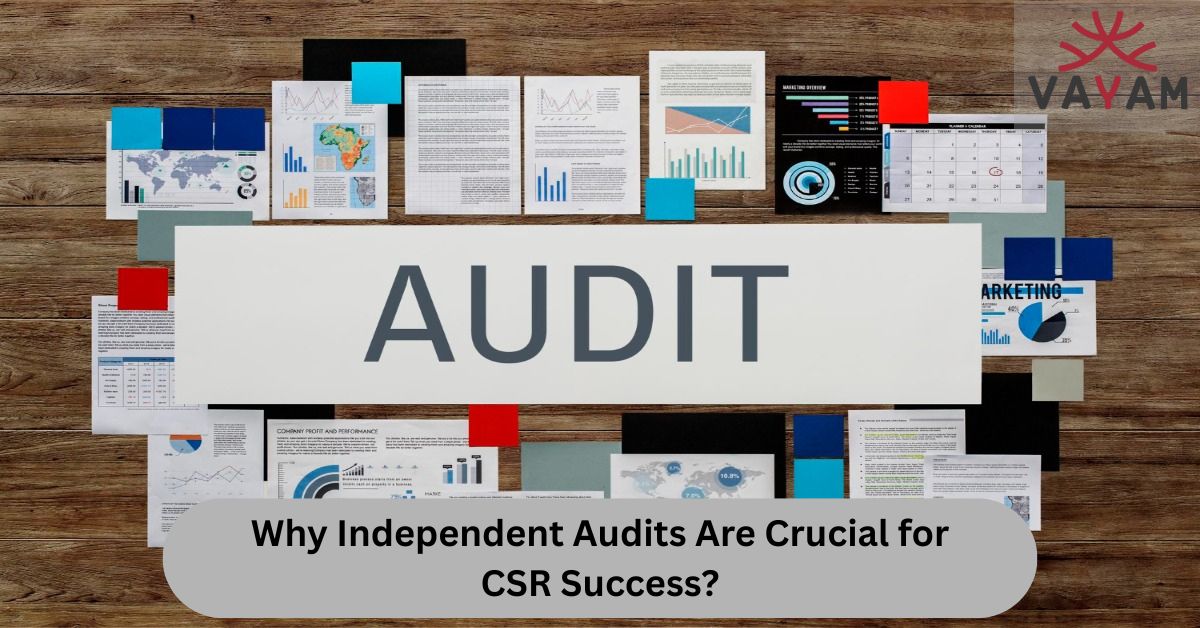
Imagine a major corporation touting its eco-friendly initiatives, only to be exposed by a whistleblower for dumping toxic waste in a remote community. Headlines scream scandal, stock prices plummet, and consumer trust evaporates overnight.
This isn’t fiction—it’s a scenario that has played out time and again in the world of corporate social responsibility (CSR). In an era where consumers demand authenticity, independent audits for CSR emerge as the unsung heroes, ensuring that lofty promises translate into real-world impact.
In this blog, we’ll dive into why CSR independent audits are not just a box to check, but a cornerstone of genuine ethical business practices. Backed by data, real-world examples, and a dash of personal insight, we’ll explore how they drive transparency, build credibility, and foster long-term success.
Understanding Independent Audits in the CSR Landscape
Before we get into the nitty-gritty, let’s clarify what independent audits for CSR success really mean. Unlike internal reviews, which can be biased by company agendas, an independent audit involves third-party experts—think firms like Deloitte or Ernst & Young—scrutinizing a company’s CSR efforts. This could cover everything from environmental impact assessments to labor rights evaluations and supply chain ethics.
Why the emphasis on independence? In a 2023 Deloitte survey, 78% of executives admitted that internal biases often skew CSR reporting. Third-party CSR verification cuts through that noise, providing an objective lens. It’s akin to having a referee in a high-stakes game; without one, cheating becomes tempting.
From my experience working with a mid-sized apparel brand, I recall how they initially relied on self-reported data for their “fair trade” claims. It sounded great on paper, but an independent audit revealed gaps in supplier working conditions. That wake-up call transformed their approach, turning potential PR disasters into opportunities for authentic improvement.

The Data-Backed Benefits of CSR Independent Audits
Numbers don’t lie, and the evidence supporting independent audits for CSR is compelling. According to a 2024 PwC report, companies with verified CSR programs see a 15% boost in investor confidence. Why? Because audits provide verifiable proof that initiatives aren’t just greenwashing— they’re grounded in reality.
Let’s break down the key advantages with some hard-hitting data:
- Enhanced Transparency and Accountability: A study by the Harvard Business Review found that 62% of consumers are more likely to buy from brands with audited CSR claims. Independent audits force companies to disclose metrics like carbon footprints or diversity hiring rates, reducing the risk of misleading stakeholders.
- Risk Mitigation in a Volatile World: In 2023, over 40% of corporate scandals involved unverified sustainability claims, per a Thomson Reuters analysis. CSR compliance audits identify vulnerabilities early, such as non-compliant suppliers or environmental lapses, potentially saving millions in fines and lawsuits.
- Boosting Brand Reputation and Market Edge: McKinsey’s research shows that firms with strong, audited CSR strategies enjoy up to 20% higher customer loyalty. This isn’t just fluff—it’s a competitive differentiator in markets where ethical sourcing and social impact matter.
These benefits aren’t abstract. Consider Unilever, which has long embraced third-party CSR verification. Their audited Sustainable Living Plan contributed to a 10% revenue growth in sustainable product lines, as reported in their 2024 annual review. Data like these underscores how independent audits for CSR success translate into tangible business wins.

On a personal note, during a project for a tech startup, I helped craft content around their CSR goals. They skipped audits initially to cut costs, but a minor supply chain issue snowballed into bad press. Once they brought in independent auditors, their reporting became ironclad, and engagement on their sustainability blog skyrocketed. It was a lesson in how skipping this step can undermine even the best intentions.
Overcoming Challenges Without Independent Audits
What happens when companies forgo CSR independent audits? The fallout can be severe, as history shows. Take the 2013 Rana Plaza collapse in Bangladesh, where over 1,100 garment workers died due to unsafe conditions. Brands like Walmart faced backlash because their internal checks failed to catch the issues—highlighting the pitfalls of self-regulation.
Common challenges include:
- Greenwashing Risks: Without external validation, companies might exaggerate claims, leading to accusations of deceit. A 2024 Nielsen poll revealed that 73% of global consumers would switch brands if they suspected insincere CSR efforts.
- Regulatory Non-Compliance: With laws like the EU’s Corporate Sustainability Reporting Directive mandating audits, skipping them invites penalties. In the US, the SEC is ramping up scrutiny on ESG (Environmental, Social, Governance) disclosures, making sustainability audits essential.
- Stakeholder Distrust: Employees, investors, and customers crave proof. A Gallup survey indicated that 55% of workers prefer companies with verified ethical practices, directly impacting talent retention.
These issues aren’t insurmountable, but they require proactive steps. Implementing independent audits for CSR isn’t about perfection—it’s about progress. In my consulting work, I’ve advised clients to start small: audit one area, like supply chain ethics, and scale up.
One anecdote sticks out—a food company I worked with discovered child labor in their cocoa sourcing through an audit. Addressing it not only fixed the problem but also strengthened their brand story, turning a negative into a narrative of commitment.

How Independent Audits Drive Long-Term CSR Success?
To truly grasp why independent audits are crucial for CSR success, consider their role in fostering innovation and resilience. Audits aren’t punitive; they’re diagnostic tools that highlight strengths and weaknesses, paving the way for strategic improvements.
For instance, a 2025 KPMG study projects that by 2030, 85% of Fortune 500 companies will mandate third-party audits for CSR reporting. This shift is driven by evolving consumer expectations and regulatory pressures. Ethical business audits help integrate CSR into core operations, from reducing waste to promoting diversity.
Here’s a quick bullet list of how audits contribute to sustained success:
- Identifying Blind Spots: Auditors uncover hidden issues, like indirect emissions in supply chains, enabling data-driven fixes.
- Facilitating Benchmarking: Compare your CSR performance against industry standards, inspiring continuous improvement.
- Enhancing Reporting Quality: Audited data makes sustainability reports more credible, attracting ESG-focused investors.
- Building Stakeholder Partnerships: Verified efforts open doors to collaborations with NGOs and governments.
Read More
How Individual Employees Can Drive CSR Change?
Building a CSR Strategy That Attracts Investors: A Practical Guide
Zero-Waste CSR: How Companies Can Minimize Environmental Impact?
Real-World Case Studies: Lessons from the Frontlines
Data and theory are great, but let’s ground this in reality. Patagonia, the outdoor apparel giant, has thrived thanks to rigorous independent audits for CSR. Their partnership with Fair Trade USA for supply chain audits has not only ensured fair wages but also boosted sales— with audited products seeing a 25% premium, per their 2024 reports.
Conversely, Volkswagen’s Dieselgate scandal in 2015 stemmed from manipulated emissions data, lacking proper independent oversight. The $30 billion fallout serves as a stark reminder of the costs of cutting corners.
From a personal perspective, I once collaborated with a nonprofit on CSR content. They audited partner companies’ programs, and the insights led to more impactful storytelling. It reinforced my belief that third-party CSR verification isn’t optional—it’s essential for credibility in today’s skeptical world.

Conclusion: Taking the Next Steps Toward Audited CSR Excellence
In wrapping up, it’s clear that independent audits for CSR success are more than a regulatory hoop—they’re a blueprint for building trust, mitigating risks, and driving meaningful change. With data showing audited companies outperforming peers in reputation and revenue, ignoring this tool is a gamble no business can afford.
Ready to elevate your CSR game? Here are actionable next steps:
- Assess Your Current Setup: Review your internal CSR processes and identify gaps where independent verification could help.
- Choose the Right Auditor: Look for accredited firms with expertise in your industry, ensuring they align with standards like GRI or SASB.
- Integrate Audits into Strategy: Make them annual events, using findings to inform goals and marketing.
- Communicate Transparently: Share audit results in reports and on your website to build stakeholder confidence.
